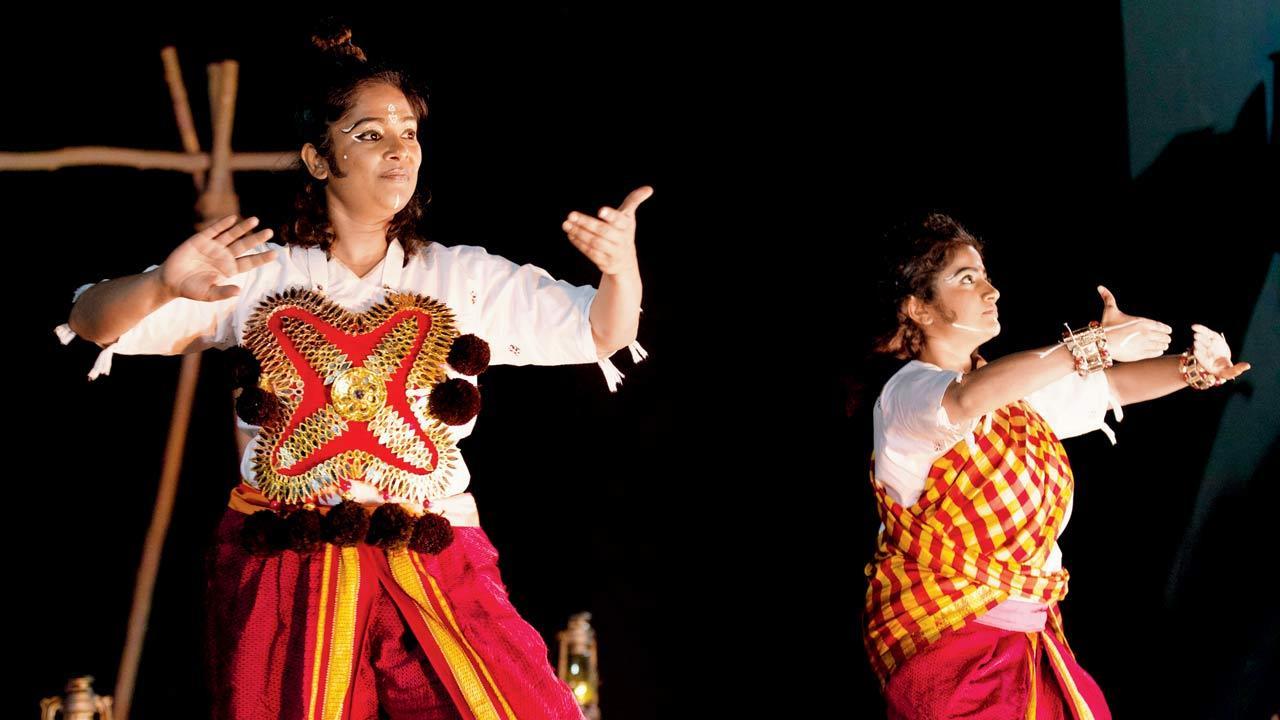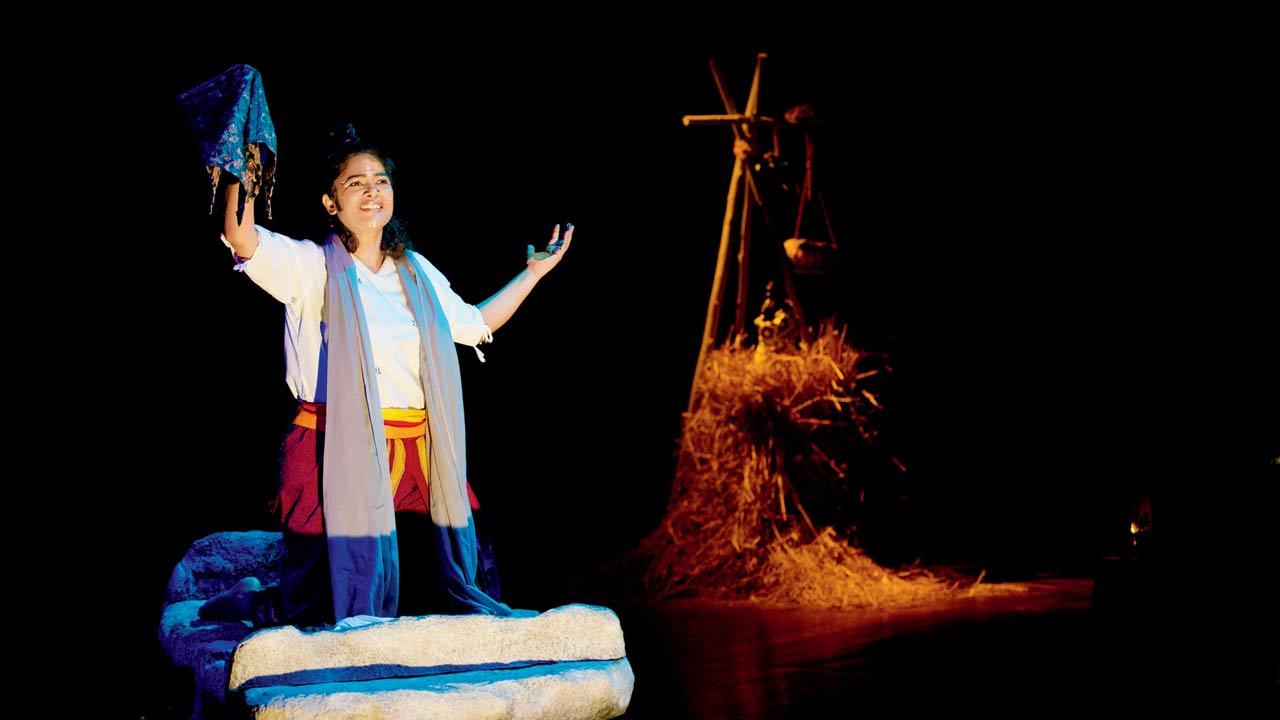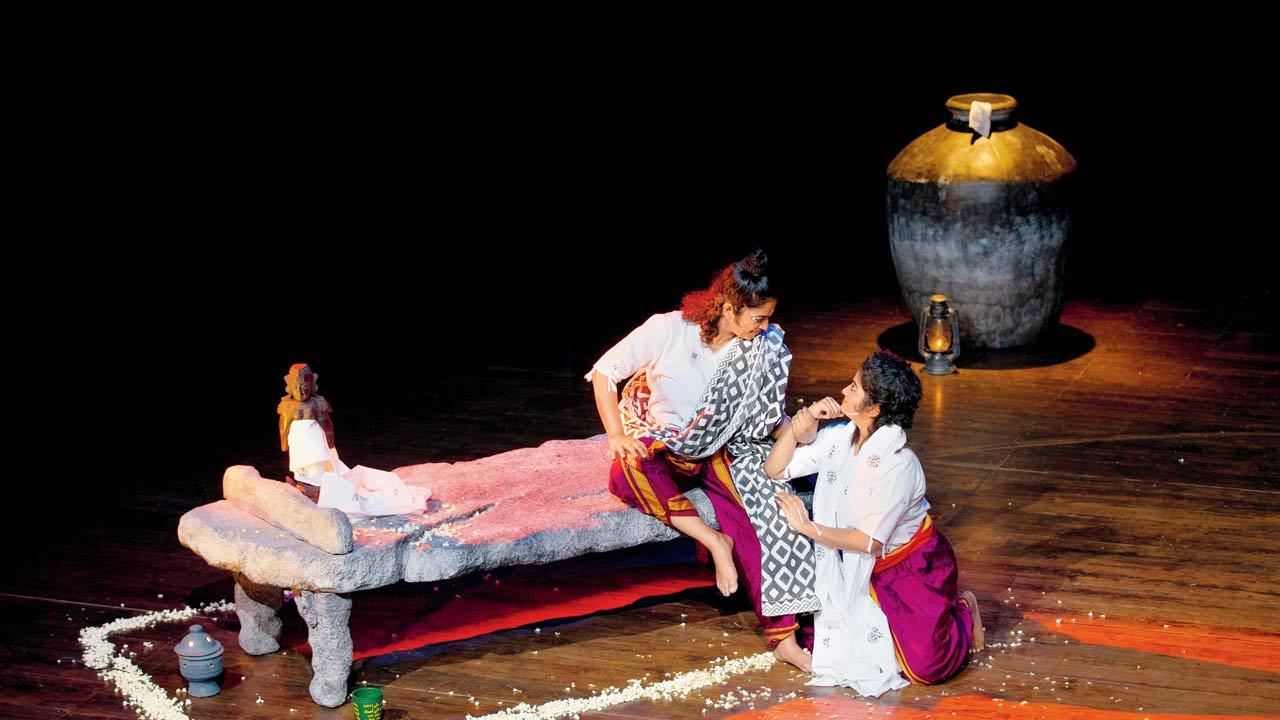Abhishek Majumdar’s concert theatre piece explores the existence, or the lack of it, of feminist voices in India’s epics and classics from the West

Stills from the play
Why did Desdemona die in William Shakespeare’s Othello? How did it happen? A musical play called Desdemona Roopakam, directed by Abhishek Majumdar examines the answer to these questions, along with putting the spotlight on feminist narratives within Shakespeare’s Othello and traditional Indian mythologies. Conceived just before the outbreak of the pandemic, the play is performed by classical musicians MD Pallavi and Bindhumalini Narayanaswamy.
ADVERTISEMENT
“Ranga Shankara in Bengaluru has an initiative called ‘Play the Play’, through which they commission work and support the arts. I had been in talks with them and I informed them that I wanted to do something with the idea of the missing women in the epics. During the pandemic, reports from many places stated that women experienced the pandemic very differently from how men did. That’s when I got in touch with Bindhu, Veena (Appiah) and the rest of the team,” Majumdar tells us. Apart from Majumdar, the play has been devised and written by Irawati Karnik, Pallavi, Veena Appiah, Narayanaswamy and Nikhil Nagaraj.

“I wanted to explore Desdemona’s story and look for similar concepts in the Indian epics. We were a small team, who travelled from their homes and met in person despite the Covid-19 scenario. We did a workshop and I started by asking them what they wanted to talk about. We realised that the idea of women’s voices being perceived differently mattered to the whole team. Most of the stories were written during rehearsals, and that’s how the performance was developed,” says Majumdar.
The play also looks at stories from the Indian epics, including those of Kaikeyi from the Ramayana, Renuka who is Parashurama’s mother, Kalidas’s Shakuntala and briefly exploring characters like Hidimba from the Mahabharata. “We question the absence of female voices in these epics; the agency these voices have and whether the outcome of the stories could have been different, if the women who have not been included in the texts had also been taken into account,” says Pallavi.

“The Ramayana is told in a certain way — Sita was abducted — and then Rama sent Hanumana to Ashok Vana. It’s in the telling and retelling that these stories live. Often these stories exist in popular culture through songs, so we decided to pick certain other instances and reimagine them, where the story takes a different turn, or takes a turn for a different reason, and sings in traditional forms,” Narayanaswamy explains. The 90-minute presentation uses performance text that is a combination of musical scores — Hindustani, Carnatic, and folk music, spoken word poetry and dramatic scenes.
While there is the use of Shakespeare’s original text, Majumdar was clear that he wanted to work with musical storytelling art forms from South India. Folk forms such as Harikathe, Yakshagana, and Yellamma Nataka have been used for this storytelling.
“We usually associate the term opera with what we know of it from the West. We were questioning the form of opera and storytelling, and wanted to look at operatic practices where epics are sung and told in India,” shares Narayanaswamy. “Yakshagana is a dance, music and storytelling form from Karnataka. In Harikathe, performed in Tamil Nadu, Andhra Pradesh and Karnataka, the narrator tells the story and breaks into song during the storytelling. It is usually performed by one person and draws a lot from the text of the epics.
Yellamma Nataka from Belagavi, is performed by trans men and women who hail Renuka as their deity and they tell multiple versions of her stories. Renuka is worshipped across South India under many different names and is the protector of their area or territory. It is interesting to look at who is telling the story, who has the power in the patriarchal caste system and take a look at how the voices of women resound across forms,” she adds.
On July 1, 6 pm and 9 pm; July 2, 5 pm and 8 pm (also on July 4 and 5 at Veda Factory)
At Prithvi Theatre, 20 Janki Kutir, Juhu Church Road, Juhu.
Log on to in.bookmyshow.com
Cost Rs 500
 Subscribe today by clicking the link and stay updated with the latest news!" Click here!
Subscribe today by clicking the link and stay updated with the latest news!" Click here!







